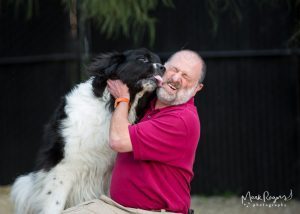A recent Sunday New York Times had an article about what it took to get your dog into a fancy (and maybe not so fancy) New York City Co-Op. While we’re not suggesting any of you should even consider moving to the Big Apple (we’d miss you too much), we thought the article was interesting. Because dogs are not a protected class, co-ops don’t need a reason to reject your dog or to explain their breed or weight restrictions. Of course, if your dog provides assistance then a host of other rules trump the co-ops (not sure if Trump owns a co-op building or not). So what does it take for your dog to pass the co-op test?
Unfortunately there is no easy answer to this question since each co-op can define its own rules. That said, a good place to start is the American Kennel Club Good Citizen Test. To pass this test your dog must do the following:
- Accept a friendly stranger
- Sit politely for petting
- Permit someone to check its ears and front feet
- Walk on a lose leash
- Walk calmly through a crowd
- Sit, get down and stay in place on command
- Come when called
- Behave politely around other dogs
- React appropriately to distractions, and
- Behave well in a supervised separation.
But even if your pet passes this test and the two of you move into your swanky new place, that doesn’t mean the work is over for you or your pet. Once in, both of you need to be good neighbors which means thinking about things like:
- Keeping your dog on a tight leash when in the building and especially in hallways and the elevator and practice good leash walking behavior (we mean you – not the dog) so no texting, checking social media etc., when you should be watching your dog;
- Installing some kind of baby gate or other barrier at your door way if your dog is likely to bound out of your unit when the door is opened;
- Remembering that, as shocking as it sounds, not everyone else will like your dog. If you see someone in the elevator ask if it’s ok to join them. If not, wait for the next one.
- Be a good neighbor and address any behavioral concerns your dog may exhibit (barking, snarling etc.)
 So, would your dog pass? Would you? Thankfully should Splash ever have to relocate to some fancy New York City Co-Op she’d be in (provided there was no artificial weight limit on our petite Newfie); Mark on the other hand is stuck where he is.
So, would your dog pass? Would you? Thankfully should Splash ever have to relocate to some fancy New York City Co-Op she’d be in (provided there was no artificial weight limit on our petite Newfie); Mark on the other hand is stuck where he is.
Thanks for reading.
Source: New York Times, Sunday, July 9 2017